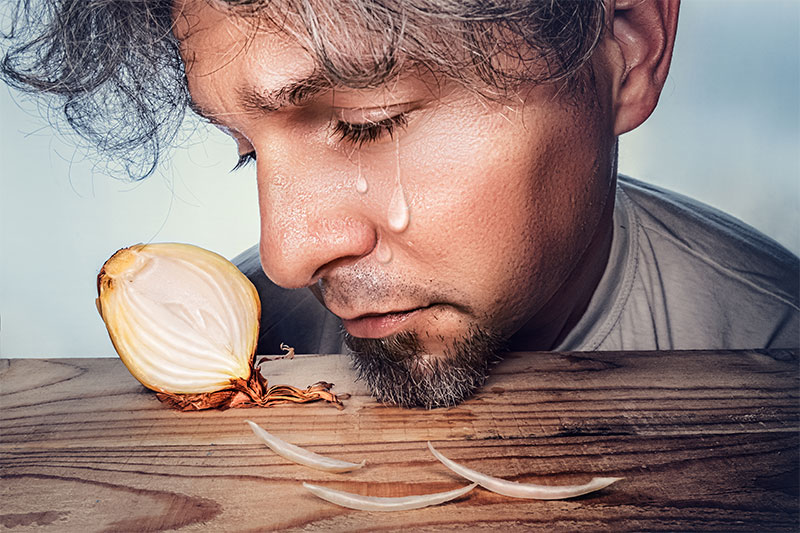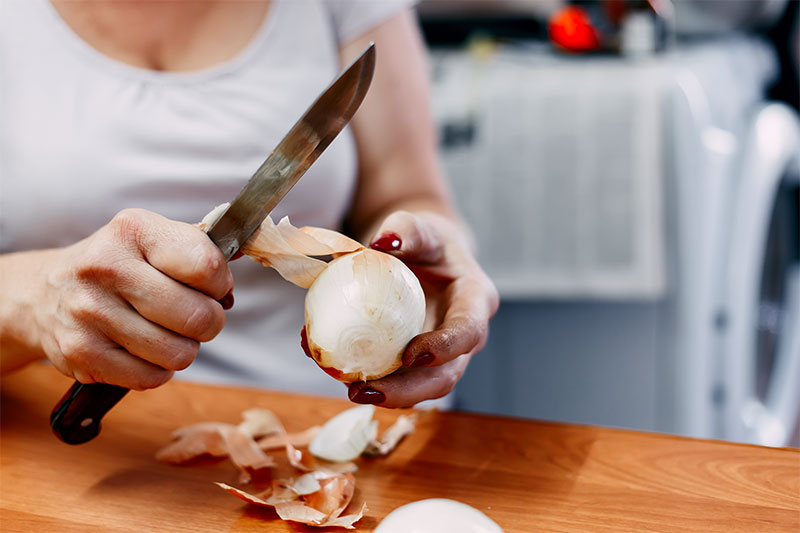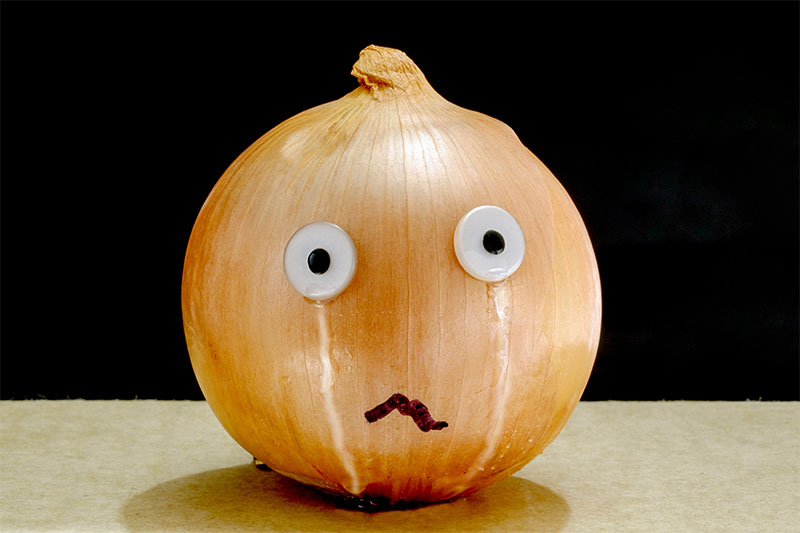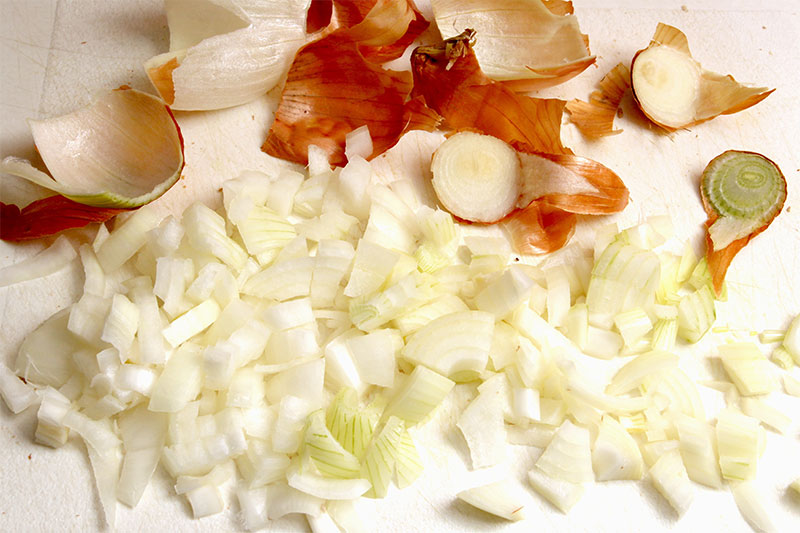We all love and hate onions. We love them because they’re versatile and delicious, ubiquitous, and indispensable in the most popular recipes, from burgers to a fancy onion soup.

We hate onions because they make us cry when we chop them, but why is that? Well, the answer is more straightforward than you think, but recent scientific discoveries are challenging old theories.
That’s how science is. Scientists explain something and then find some new data and change their story. That’s how we get to the bottom of things. Well, up until recently, we thought we know why onions make you cry, but now we know it’s because something else.
Read on and see why onions actually make you cry. You’ll also learn how to prevent the crying, and that’s putting knowledge into practice. Here’s the real reason onions make you cry.
Here’s How Onions Work

Whole onions are basically odorless and definitely won’t make you cry. It’s the chemical compounds in the bulb’s cells which have interesting effects.
Some researchers say onions release irritant chemicals, like the ones that make you cry, as a defense mechanism against animals, including humans. As the cells rupture, a set of unique compounds are released into the air, preventing invasive species from eating the onion.
One of these compounds is called allyl methyl, which is responsible for onion breath. These are some molecules that form from allicin. The bio-active compound common in onions, shallots, chives and garlic.
Although the scientific community initially blamed the allicin compound and its derivatives for making us cry, now we know there are other chemicals involved.
When you slice an onion, enzymes and allinaces break down in contact with the air to form new sulphuric compounds, the real chemicals behind our crying sensation.
Look Who’s Guilty

Onion chemicals bind, combine, and break down to create a molecule called syn-propanethial-S-oxide.
More specifically, amino acid sulfoxides become sulfenic acid, which arranges itself to become syn-propanethial-S-oxide. This compound comes in contact with our eyes irritating our lachrymal glands producing tears.
Make no mistake, those tears are a defense mechanism to flush out the volatile chemical from your eyes. Crying while slicing onions is not that bad, your body is protecting your eyeballs.
Not all onions make you cry as much. The more sulfur in the onion, the more you’ll feel its effects. Yellow, red and white onions are the most pungent, and the so called ‘sweet’ onions and green onions will have a milder effect of you.
There’s still so much to learn about what we eat every day. Serious research around food is a relatively new branch.
How to Prevent Onions From Making Your Cry

There are many ways to prevent or diminish the crying reflex when slicing onions. Some are anecdotal and probably less effective, like breathing with your mouth or lighting a match, while others are based on science. Here are the most effective.
Blanching (flash boiling) the onions before cutting them will denature the irritant enzymes and prevent you from crying. Of course, cooked onions are not the same ingredient as raw onions, so this might be effective but not practical.
Cutting your onions under a stream of running water is quite useful. You just need to place your cutting board in the sink. The chemicals are flushed down as you cut, meaning they don’t have the chance of getting into your eyes.
Finally, you can make sure your onions are dead cold, almost frozen before chopping them. The lower the temperature, the less volatile the chemicals will be. Cold temperatures prevent chemical reactions from happening.
Shedding Some Tears Is Not That Bad Is It?

Some people are more reactive to the chemicals in onions, but most of us have mild reactions.
Cooking is an act of passion, and it comes with some sacrifices. Are a few tears enough to stop you from cooking a tasty and comfy home-cooked meal? We’re sure they aren’t.
If you can’t stand the feeling, try the methods above and see which work for you. Whatever you do, keep on cooking, and don’t leave onions out of your recipes, they’re game-changers.
Once cooked, onions are simply lovingly sweet and tender; if there’s a price to pay for eating those tasty onions, so be it. Let us cry a little.



